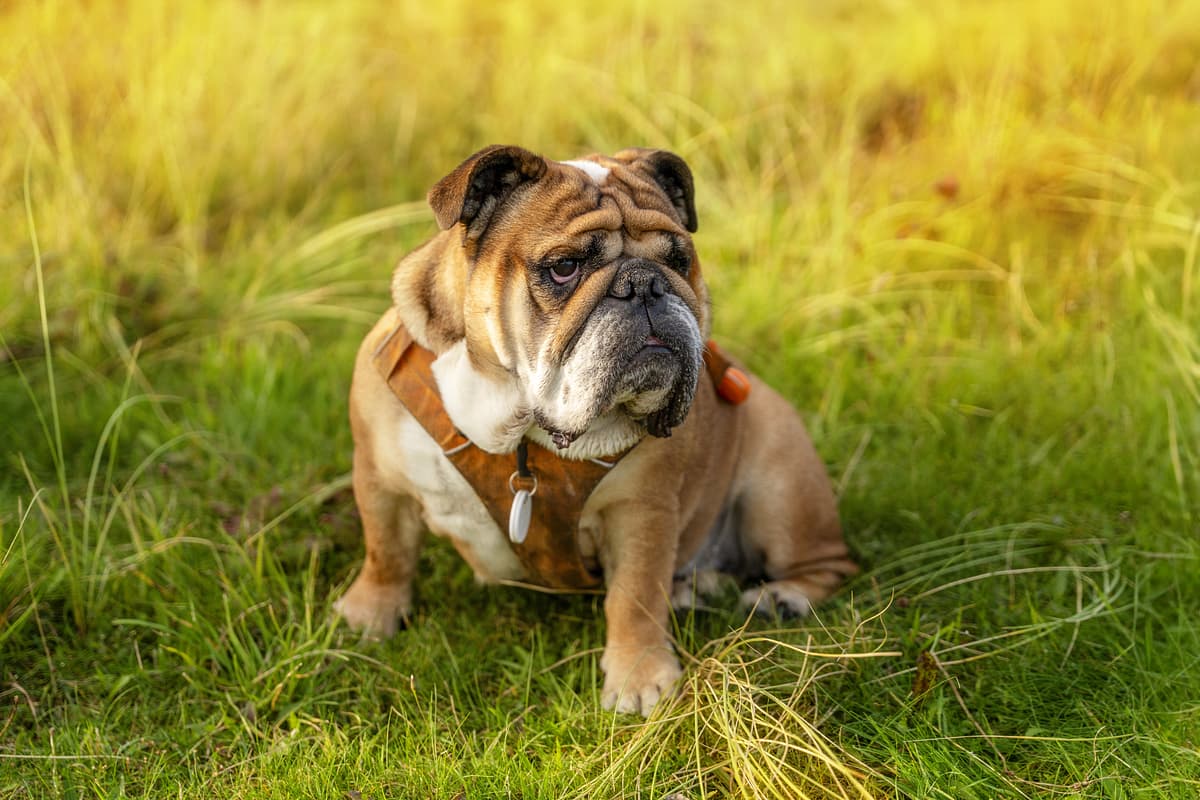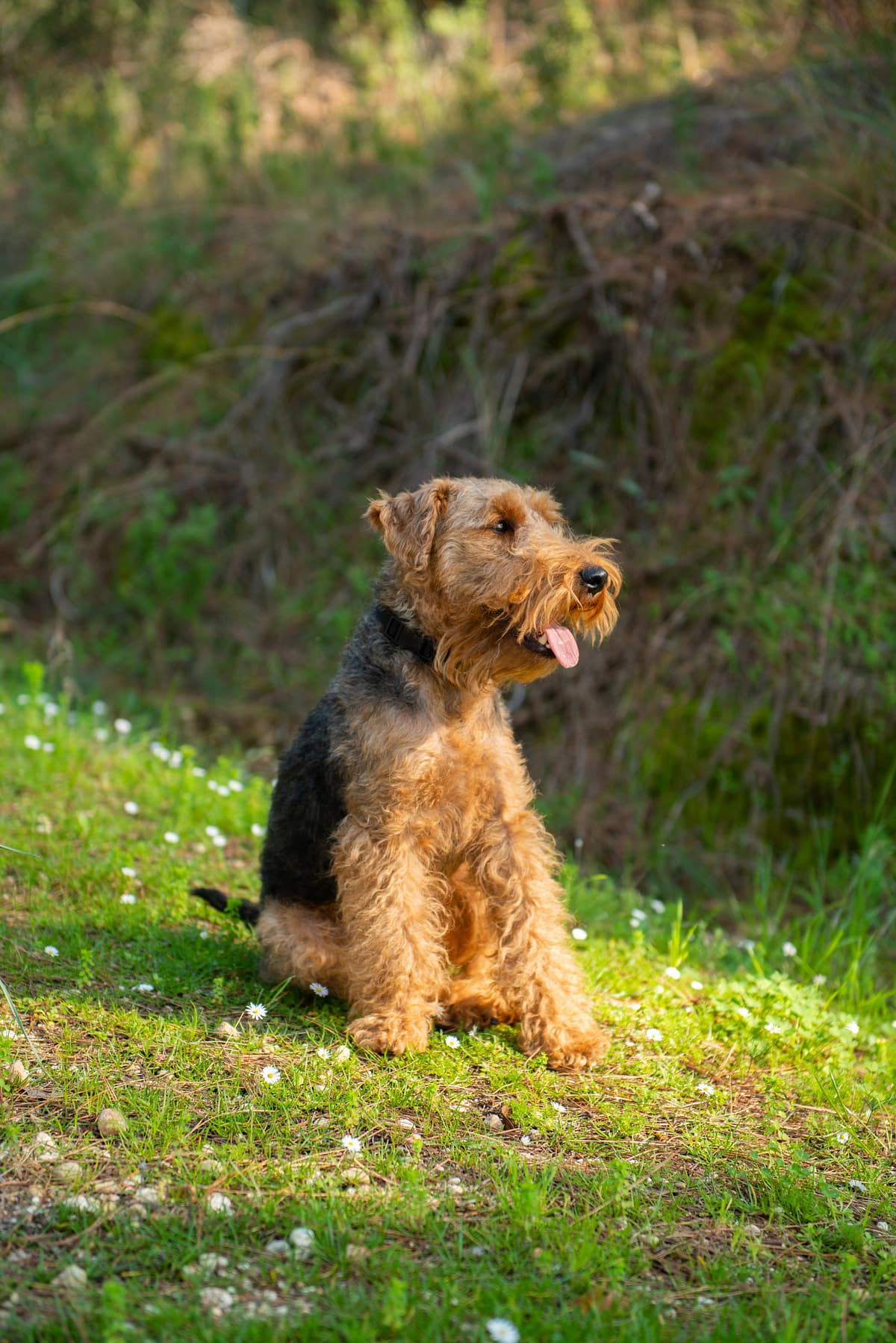English Bulldog vs Welsh Terrier
Discover the differences between English Bulldog and Welsh Terrier to make the best choice for your situation.
Try different breeds

English Bulldog
Stocky, courageous, and affectionate, this breed charms with its wrinkled face and calm nature. Loyal and gentle, it thrives as a loving family companion.

Welsh Terrier
Energetic, bold, and affectionate, this breed thrives on adventure and companionship. Always eager to play, they bring fun and spirit to any home.
Quick comparison
Medium
23–25 kg
Short, smooth
8–10 years
18–23 kg
Low activity needs
Medium
9–10 kg
Wiry, dense
12–15 years
8–9 kg
High energy
Personality & behavior
Compare the personality traits and behavioral characteristics of both breeds.
English Bulldog
Affectionate and gentle with family and children
Learns basic commands with some patience
Prefers lounging over vigorous physical activity
Enjoys play but tires fairly quickly
Adjusts well to most living environments
Welsh Terrier
Enjoys company of people and other dogs
Quick learner, eager to solve problems
Highly active, needs regular daily exercise
Loves interactive games and activities
Adjusts well to new situations and environments
Care needs
Exercise, grooming, and daily care requirements
English Bulldog
Brachycephalic syndrome, skin fold infections
Welsh Terrier
Lens luxation, allergies
Suitability
How well each breed fits different living situations and families
English Bulldog
Good option
Easygoing, low-maintenance nature suits owners with limited dog experience
Excellent fit
Moderate exercise needs and calm demeanor work well in small living spaces
Not ideal
Low stamina and breathing issues make them unsuited for high-activity lifestyles
Very suitable
Gentle, patient, and tolerant with young children when properly socialized
Usually compatible
Generally sociable but may need guidance with other pets, especially dogs
Not recommended
They struggle with long periods alone and are prone to separation anxiety
Welsh Terrier
Moderately suitable
Independent nature may challenge first-time owners without prior dog experience
Possible fit
Adapts to apartments if exercised but may bark when bored
Excellent companion
High energy matches well with active individuals or families
Good with supervision
Generally good with children but needs supervision and training
Needs early socialization
Can be territorial with other pets without proper socialization
Not recommended
Dislikes being alone and may develop destructive behaviors if left long hours
Breed strengths
What each breed excels at and their best qualities
English Bulldog
- Affectionate with family members
- Generally good with children
- Low exercise requirements
- Minimal grooming needs
- Adaptable to apartment living
Welsh Terrier
- Alert and effective watchdog instincts
- Consistently playful and energetic demeanor
- Generally good with older children
- Adaptable to city or rural living
- Low shedding, wiry hypoallergenic coat
Challenges & considerations
Potential challenges and considerations for each breed
English Bulldog
- Prone to respiratory problems
- High risk of overheating
- Susceptible to skin infections
- Can be stubborn during training
- Tends to drool frequently
Welsh Terrier
- Strong prey drive may chase small animals
- Can be stubborn during training sessions
- Needs daily vigorous exercise and mental stimulation
- May become vocal or bark frequently
- Prone to digging if bored or unsupervised
Ready to choose your perfect breed?
Learn more about each breed or compare other breeds to find the perfect match for your lifestyle.
Discover more helpful tools
Make use of our other free tools to get the most out of your pet experience

